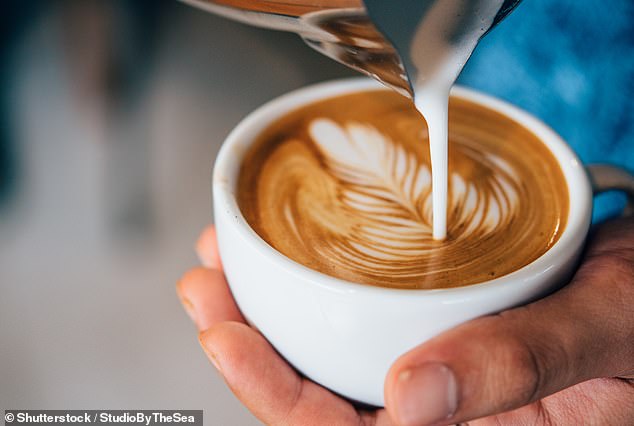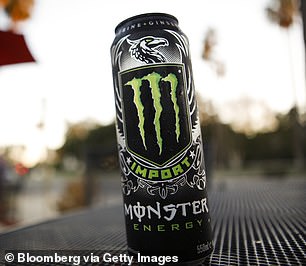A cup of coffee, energy drink or a caffeine pill? Expert reveals what’s best for a quick energy boost
Whether it’s drinking a cup of coffee in the morning or grabbing an energy drink, many of us use caffeine to stay alert.
Some drinks have more impact, while others will just give you the dreaded caffeine crash.
So, is coffee or tea better than a caffeine pill for an energy boost? Here, DailyMail.com asks dietitians what’s best to drink when you need a burst of energy.
Experts say that with new high-caffeine energy drinks hitting the market, caffeine pills aren’t always the products that contain the most caffeine.
‘Generally, caffeine tablets contain more caffeine than many other drinks, but we have also seen an increase in caffeinated energy drinks, which are equivalent to many regular caffeine tablets,’ says registered dietitian Aisling Pigott, who lives in Britain.
Not only coffee, energy drinks and supplements contain caffeine. Popular carbonated drinks such as Coca-Cola also contain the stimulant, but at half the amount found in coffee
Most cups of black coffee or matcha contain 80 mg of caffeine, a cup of black or green tea is half as much at about 40 mg.
Traditionally, most energy drinks such as Monster or Red Bull contain around 80 to 100mg, but Ms Pigott says energy drinks such as Prime contain 200mg, as do some caffeine pills.
Caffeine is structurally similar to a chemical called adenosine, which is naturally present in our brains and makes you sleepy.
Like a lock and key, caffeine fits into the adenosine receptors, blocking the chemical and making you feel more awake.

A black coffee contains between 80 and 100 mg of caffeine, depending on the brewing process, and a filter coffee can contain as much as 140 mg.
But once the caffeine wears off, it can leave you feeling very tired and sleepy.
This is known as a caffeine crash and the more caffeine you have, the greater the drop in energy levels.
However, everyone’s tolerance to the stimulant is different.
Ms Pigott said: ‘Caffeine is a stimulant that increases alertness and energy levels – everyone has a different capacity and tolerance for caffeine.

Most energy drinks like Monster or Red Bull are around 80 to 100 mg, but newer energy drinks like Prime contain 200 mg
‘The dose needed to increase alertness is very individual. Regular caffeine users are probably less sensitive than irregular caffeine users.’
People can safely consume 300 mg of caffeine per day, which is the equivalent of drinking up to three cups of coffee.
But if you are pregnant, you should not consume more than 200 mg or two cups of coffee.
And when it comes to coffee, you can have too much of a good thing.
According to the NHS, consuming a lot of caffeine can cause palpitations, anxiety and restlessness.
But it can also make it harder to concentrate.
Ms Pigott said: ‘Like everything in life, sometimes less is more – so for example if you use caffeine to increase focus, too high a dose can make you jittery and unable to concentrate.’
However, if you want a quick dose of energy, drinking a cup of coffee or an energy drink can be the fastest way to get that much-needed boost.
Although tablets often contain more caffeine, drinking them in liquid form can give you a quicker boost.
‘The liquid form is probably absorbed a little faster, depending on what else is in our stomach. But in reality there is little difference,” says Ms Pigott.
She added: ‘None are ‘better’ – they are all the same substance ‘caffeine’ in different forms.’
However, she suggests avoiding energy drinks and caffeine tablets with 200 mg or more, as they will only make you more tired.
Ms Pigott said: ‘They will only provide a temporary boost, with a subsequent crash! In the long run it’s not worth it and it will probably make you even more tired.’
